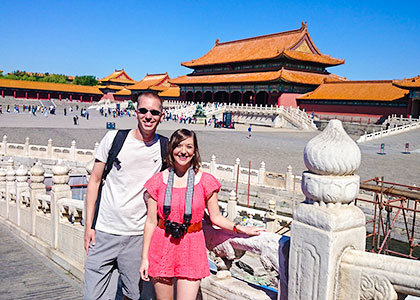20 Recommended Tips To Savoring the Best of Chinese Cuisine
20 Recommended Tips To Savoring the Best of Chinese Cuisine
Blog Article
Top 10 Tips For Dealing With copyright Items When Shopping In China
1. Be aware of the high-risk products: Most counterfeited goods are brand name items like designer watches, bags, and electronic items. When you shop for these products be cautious.
Pro: You are able to focus on products that are likely to be fake.
Con: Uncertainty over the authenticity of the product could result in suspicion.
2. Look for genuine product information
It is important to familiarize yourself prior to shopping with the brand's name it's logo, the information about the materials used and the packaging.
Pro: Improves your ability to spot subtle variations between copyright products.
Con: It can take lots of time, especially when making use of products aren't known to you.
3. Trusted Stores
Tips - When shopping for expensive products buy only from official brand stores and reputable malls.
Pro: The authenticity of the item is guaranteed, and comes with warranties and receipts.
Cons: The products may be more expensive on the markets or in smaller stores.
4. Check the labels and tags
Look out for incorrect spellings or fonts that are inconsistent, as well as low-quality packaging.
Pro: A simple method to spot poorly-made counterfeits.
Cons: Fake products may be high-quality and closely resemble those of the original and are difficult to distinguish.
5. Beware of "too too good to be true Price"
Tips: Exceptionally low prices for luxury items are warning signs. Luxury goods are rarely sold at a price that is lower than their retail value.
Pro: Avoids obvious frauds.
Contra: A few sellers make use of moderate prices to make counterfeits appear more convincing.
6. Request Certificates of Validity
Tip: If you purchase antiques or jade as well as branded items It is recommended to obtain proof of authenticity.
Pros: It gives you an extra layer to your confidence.
Con: Certificates can also be falsified, so it's not a foolproof method.
7. Test before Buying
Request to test electronic devices and other high-end products prior to you buy these items.
Pro: Assists in confirming the functionality and quality of the product.
Con: Sellers may not always permit testing. Tests can also be limited or superficial.
8. Buy Antiques Only From Experts
Tips - To confirm the authenticity of antiques, you must have a deep knowledge. Beware of them until you can be certain of their authenticity.
Pro: Reduces the possibility of being scammed with copyright or fake.
Con: Miss out on attractive, but inauthentic, decorative things.
9. Use a Trusted Local Guide
Tips An experienced local guide or friend familiar with the market can help find reputable vendors and identify fakes.
Pro: Reduces time and minimizes the risk of shopping in foreign markets.
Con: Guides can expect a fee or commission. This can be added to the price of your trip.
10. Trust your Instincts
You should walk away from the seller if you don't feel right. It could be due to the customer's attitude, or the quality of the product, its cost, etc.
Pro: Helps avoid regrettable shopping.
Con: Over-cautiousness might lead you to miss legitimate deals.
Advantages of avoiding copyright products
Durability: Genuine products are more durable and give better value for money.
Enjoy Peace of Mind Don't worry about getting victimized.
Legal Security: Certain countries penalize travelers for bringing copyright goods back home.
Supporting authentic products is important in ensuring ethical business methods.
Pros and Cons of Avoiding copyright
Genuine items usually cost more.
A small number of genuine products are available at smaller stores or market stalls on the streets.
False bargains: Some fakes offer high quality and great value at a low price.
By following these suggestions, you will be able to shop in China with confidence, and make informed choices about purchasing authentic or imitation items. Read the recommended view highlights of this attraction for blog tips including great tang all day mall xian.html, shopping in kashgar, shopping in fuzhou, kashgar tour maps, top three buddhist temples in chengdu, naked marriage in china the most fashionable wedding style for the 1980s, kashgar tour maps, great tang all day mall xian.html, chinese festival cuisine, lion forest garden suzhou classical garden and more.
Top 10 Tips About Tipping In China
1. Make sure you know that giving a tip in China is not considered a custom.
It is affordable and adheres to the norms of culture.
Con: It may be confusing for travellers who are used to tipping in their home countries.
2. Make sure to check for service fees
Tips: Most luxury restaurants and hotels charge a a service fee (10-15 percent) on the bill. This makes tipping unnecessary.
Pro: No need to calculate or leave a tip.
Con: Service fees might not always be clearly indicated.
3. Tips Only When It's Appropriate
Tipping: In places with an abundance of tourists or hotels that are located in international areas It is normal to receive tips, especially from drivers, tour guides or hotel staff.
Pro: A simple gesture of gratitude can express your appreciation for the exceptional service you received.
Cons: Inconsistent practices could cause confusion about the proper time to tip.
4. Provide Tips Discreetly
Tip: If you choose to tip, do so in a manner that is not awkward or creating a feeling of discomfort for the recipient.
Pro: Reduces the need for public attention and embarrassment.
Cons: Some might refuse to accept the offer. This could cause awkward moments.
5. Tipping in Cash
Tips: Pay cash instead of adding a tip to your bill if tipping is appropriate. Most payment systems in China do not have tips feature.
Pros: Cash can be used anywhere and is easy to get.
Con: You have to carry small denominations, which could be a hassle.
6. Visit tourist-focused businesses that are based on tourism
Tipping is expected and appreciated in the areas that Western tourists are frequenting, such as the world's most famous restaurants as well as guided tours.
Pro: It is in line with the expectations of service providers that are accustomed to Western standards.
Con: Inspires a gradual shift toward tipping, despite that it's not necessary.
7. Avoid Tipping Taxi Drivers
Tip: Tipping your taxi driver is not usual. You can, however make sure to round the bill to the nearest dollar when you need to.
Cons: You will not be able to show goodwill while keeping up with the local culture.
Con: In places other that tourist areas, rounding up may be misunderstood to mean a tip.
8. Don't forget to give your tour guides a tip
Tipping is commonplace for private and group tours in cities such Beijing or Shanghai. It is common to tip the guide or driver a small amount in the range of Y=50 to Y=100.
Pro: Reward and recognize excellent service.
Cons: It may set the expectation for future visitors to tip more.
9. Avoid Over-Tipping
Tipping: A small amount (5-10 percent or less) is sufficient when you opt to give a leave a tip. It may seem excessive or unneeded to offer big tips.
Pro: You won't offend locals, or spend too much.
Pro: Tipping generously can cause discomfort to hold back.
10. Research Ahead of Time
It is recommended to know the details of the tipping customs in the specific region or establishment prior to arrival. Some provinces catering to businesses or tourists may have different expectations.
It assists you in adjusting to the local culture and prevents misunderstandings.
Con: It is important to take the time to investigate each area or place.
Tips for Tipping Practices that Benefit China
Save money If you don't have to pay for tips, you will reduce your overall costs.
Cultural Adaptation: Incorporates traditions, encouraging respect and integrating.
Simple: No need to carry extra cash or to calculate.
Help service providers focus on quality, rather than advice.
Pros and Cons of Tipping Behaviors in China
Tourists who aren't familiar with the culture: Travelers from tipping cultures may have a difficult time make the transition.
Awkward situations: Giving a gratuity in the wrong way could lead to confusion or cause discomfort.
Tourism has triggered an increase in expectations. In some areas there is a tradition of tipping.
Inadequately than Not Thanks: Tipping is a way for certain travelers to express their gratitude. The absence of tipping can make them feel limited.
If you follow these guidelines, you can navigate China's tipping regulations with confidence, ensuring both cultural respect and a pleasant dining experience. Take a look at the recommended view information about this spot for site examples including basha miao village, south luogu laneone of the oldest neighborhoods in beijing, anren ancient town, the origin and history of the mysterious chinese dragon, wang zhaojun one of the four beauties in ancient china, shopping in dunhuang, basha miao village, popular beijing night markets, biking tours, wang zhaojun one of the four beauties in ancient china and more.